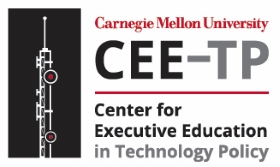ICT accessibility by Persons with Disabilities
Instructor: Clara-Luz Alvarez, professor at the Mexico campus of Universidad Panamericana, and former Commissioner of the Mexican telecommunications regulator (Comisión Federal de Telecomunicaciones)
Information and communications technologies (ICT) such as the Internet, telephone, television, and emergency dispatch services enhance our lives, and allow meaningful participation in society. This can be true for everyone, regardless of disability status, as long as ICTs are designed to be accessible. This course addresses the technologies and policies that advance ICT accessibility. It begins with the importance of ICT accessibility by persons with disabilities from a social, economic and labor perspective. The course then addresses the relationship between disability and human rights, and the basic principles for ICT accessibility which include universal design, functional equivalent, and equal access. Technology development has increased the availability of accessible services and equipment, so the course provides an overview of such technologies and considerations to be taken into account for implementing them. The course then presents legal instruments and standards, including the Convention on the Rights of Persons with Disabilities that already has 187 State parties, as well as national legal systems and accessibility standards. In its final section, the course discusses issues that may promote or hinder the implementation of ICT accessibility based on the experience of several countries, including developing countries, and policy tools that can be adopted to address these challenges. These tools include quantitative measurements related to ICT accessibility, laws and regulations, promotion of best practices, public awareness campaigns, training, research, procurement strategies, and more.
- This course is intended for people involved in ICT policy, law or technology, as well as in policy decisions for social development or for accomplishing the Sustainable Development Goals
- Upon completing the course, participants will have greater awareness and understanding of the importance of considering ICT accessibility in almost any policy decision. Also, participants will have a greater understanding about how to expand policy tools for ICT accessibility.
- No prior knowledge of ICT accessibility is required. Every participant will contribute with their experience and reflections.
